ARTICLE AD BOX
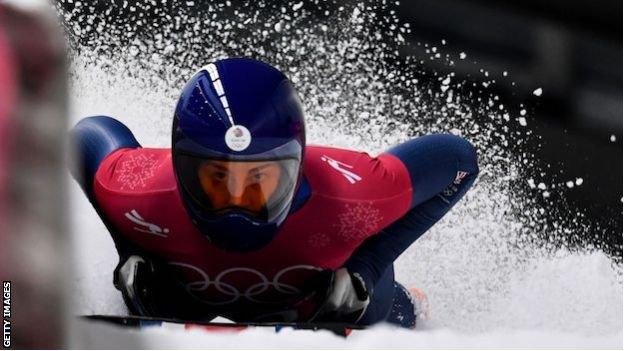 Team GB won five medals at the 2018 Winter Olympics - including three in skeleton
Team GB won five medals at the 2018 Winter Olympics - including three in skeletonIt feels like one Olympics has only just ended, and yet here we are - 100 days from the start of the next one.
Beijing 2022 kicks off on 4 February with more than two weeks of action on snow and ice to follow, and Team GB are expected to field a 57-strong team across 17 disciplines.
Great Britain won five medals at the previous two editions of the Winter Olympics, but the team will be looking to better that haul in Beijing, with Georgie Harland, Team GB's chef de mission, praising the "exciting" squad set to take to the greatest stage.
"I was an athlete myself so I'm the last person to start putting medals around people's necks, particularly with the nature of winter sports," the former modern pentathlete, who won bronze at Athens 2004, told BBC Sport. "We all know it's small margins which makes it exciting - the jeopardy is high.
"We've got a great group of athletes. We may not be a natural alpine nation, but we do tend to punch above our weight so it's an exciting team.
"What we're getting is a strength in depth of athletes. The pool is getting bigger, and we're entering more disciplines than we ever have done before.
"That's really important to us. It's not about just going in two events, two disciplines, we want to have strength in depth so we can capture the nation."
What's new?
Beijing will become the first city in Olympic history to host both a summer and winter Games, having held the summer Olympics in 2008.
Many of the venues used to house the summer sports 14 years earlier will be reused next year, including the Bird's Nest stadium, but some sports, including alpine skiing, bobsleigh and skeleton, will take place in the mountains outside Beijing.
All venues for the Games, say organisers, will run entirely on renewable energy.
Seven new events have been added to the Winter Olympic programme for Beijing, with the goal of increasing female participation in the Games and enhancing the appeal to younger audiences.
The new events are women's monobob and freestyle skiing big air (men's and women's), as well as mixed team events in short-track speed skating team relay, ski jumping, freestyle skiing aerials and snowboard cross.
As a result, there will be more female athletes (45.44% of participants) and women's events in Beijing than at any previous winter Games.
In ice hockey, players from the NHL will be allowed to compete again, having being absent from Pyeongchang 2018.
Haiti is set to make its Winter Olympic debut with one qualification spot sealed in the men's alpine skiing, but North Korea has been banned from the Games after the IOC suspended its committee until the end of 2022 for not competing in the Tokyo summer Olympics.
If any North Korean athlete qualifies, the IOC will take an "appropriate decision" - which could mean they are permitted to compete under a neutral flag.
Team GB hopes
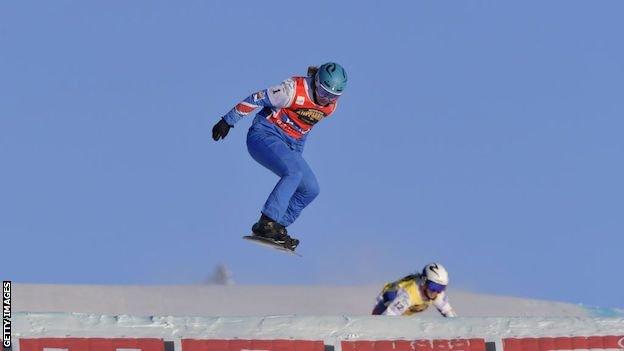 Charlotte Bankes won gold in the women's snowboard cross at the 2021 World Championships
Charlotte Bankes won gold in the women's snowboard cross at the 2021 World ChampionshipsUK Sport has not yet set a medal target for Beijing, but chose not to set an official one for the Tokyo summer Games because of the impact of the pandemic on athletes' preparations. Instead, it set a broad medal range.
But GB Snowsport, the body that oversees ski and snowboard, has set its own target of between three and seven Olympic medals.
Data company Gracenote has published its virtual medal table and has Britain winning three medals, with two fourth places and three others finishing in the top eight.
They have predicted medals for the mixed curling (gold) and men's curling (silver) and a bronze medal for snowboard cross star Charlotte Bankes, who is British-born but competed for France until 2018.
Izzy Atkin, who won GB's first Winter Olympic ski medal with bronze in slopestyle in 2018, is again set to challenge for medals, alongside fellow freestyle skier James Woods.
Olympic silver medal-winning freestyle skier Gus Kenworthy previously represented the United States but as switched to represent GB for his British-born mother in what is likely to be his final Games.
Snowboarder Katie Ormerod broke her heel on the eve of the Pyeongchang Olympics four years ago but is back better than ever and a contender for a medal, and look out too for alpine skier Dave Ryding, who will be competing at his fourth Olympics.
Away from the slopes, Great Britain will be looking to continue the record of winning a skeleton medal at every Games since it was re-introduced in 2002.
GB have won gold in the event at the past three Games. Laura Deas won bronze in Pyeongchang but can she upgrade this time round? Marcus Wyatt recently won a silver medal at the Beijing test event on the track they will be racing on in February, as did Brad Hall and Greg Cackett in the two-man bobsleigh.
And London 2012 long jump champion Greg Rutherford hopes to make his Winter Olympic debut in the men's four-man bobsleigh.
First Team GB athletes announced for Beijing
How will Covid-19 restrictions affect the Games?
Beijing 2022 will be another Games taking place under the shadow of the Covid-19 pandemic.
Athletes who are not fully vaccinated against coronavirus will have to serve a 21-day quarantine on arrival in Beijing, while tickets will be sold "exclusively to spectators residing in China's mainland" who meet the terms of the counter-measures.
Vaccinated athletes will be allowed to move only between Games-related venues for training, competitions and work, and all those involved in the Games will operate within a closed-loop management system and will be tested daily.
Harland told BBC Sport that "most" of the athletes on GB's long list are fully vaccinated, and that she had not had any instances of athletes not wanting to be jabbed.
She added: "I have full confidence that we will go to the Games with a fully vaccinated team."
What are the other concerns?
The IOC has been heavily criticised for its decision to award the 2022 Olympics to China, with more than 180 organisations calling on governments to boycott the Beijing Games because of reported human rights abuses against ethnic minorities in the country.
Human rights groups say the Chinese government has gradually stripped away the religious and other freedoms of the Uighurs - a Muslim minority group which lives mostly in the province of Xinjiang province in northwestern China - culminating in an oppressive system of mass surveillance, detention, indoctrination, and even forced sterilisation.
China has consistently denied allegations of human rights abuses in Xinjiang, but the World Uyghur Congress has described next year's Games as "a genocide Olympics". Earlier this month, IOC vice-president John Coates said it would not pressure China over its human rights record because it was not in the governing body's "remit".
There are also concerns about air pollution in Beijing. An academic study, shared with the BBC earlier in the year, said athletes competing at the Winter Olympics could be doing so in potentially hazardous, polluted air.
The report looked at air quality data over the past five years for the month of February - when the Games will be held - and found poor to hazardous conditions on as many as 15 days, with an average of 9.5 days.
The IOC said it had been working with local organisers to address the issue.

 3 years ago
64
3 years ago
64
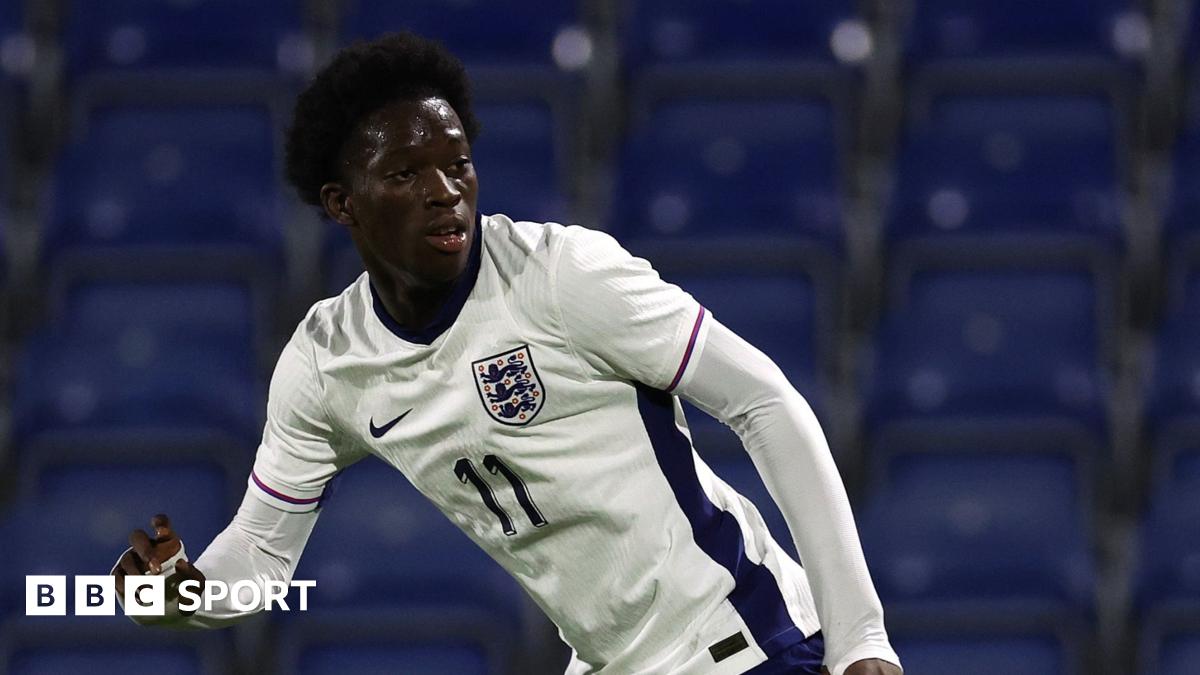
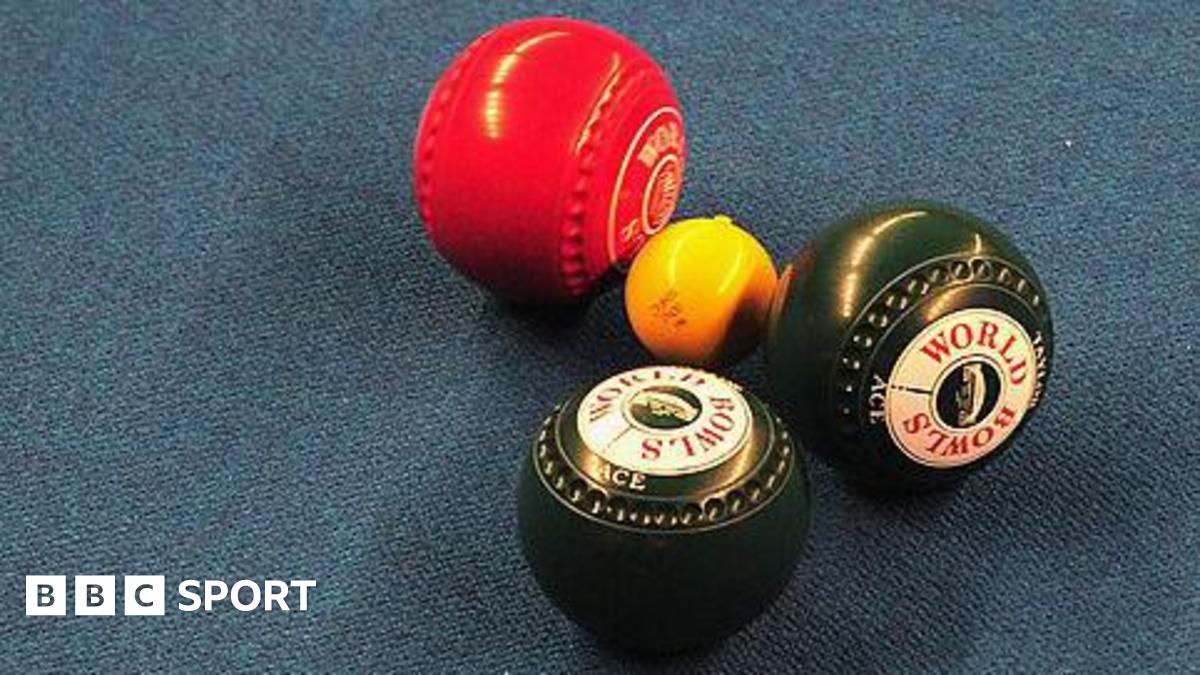
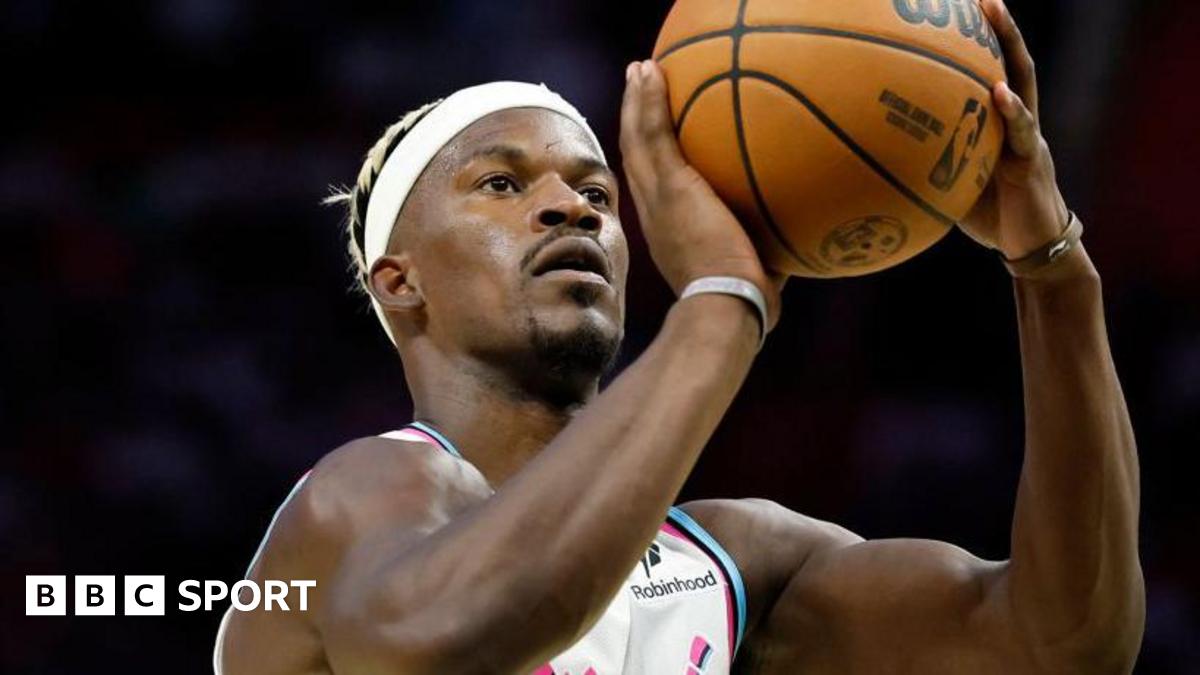





 English (US) ·
English (US) ·